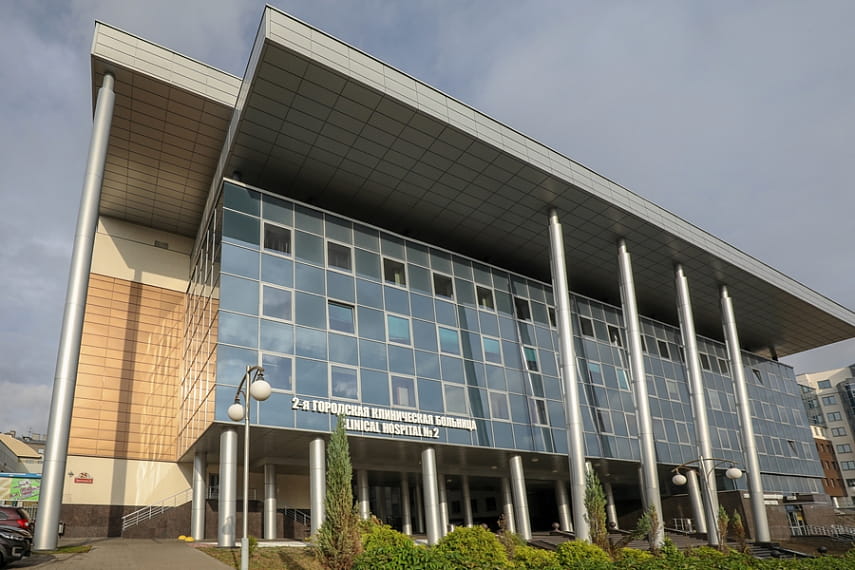
Clinical Hospital №2 in Minsk
The monastic and lay sisters and brothers of Saint Elisabeth Convent make helping people in need an important part of their everyday lives. The sisters are inspired to serve with our heavenly intercessor, Saint Elisabeth, and our Saviour Jesus Christ.
Helping sick people is one of the many vectors of our Convent's ministries. Apart from our Visiting Nurse Service, which focuses on helping bedridden patients at home, our lay sisters also visit the patients of the Minsk City Clinical Hospital No.2 under the supervision of the wife of one of our priests.
Lay sisters have traditionally served in hospitals and clinics for centuries. The lay sisters of Saint Elisabeth Convent visit the patients of City Hospital No.2. The hospital has eleven stationery departments and the City Cardiology Centre where the patients can get professional medical help.
While the doctors heal the patients' bodies, our sisters are there to bring the ultimate healer of souls - our Saviour Jesus Christ
Who forgives all your iniquity, who heals all your diseases, who redeems your life from the pit, who crowns you with steadfast love and mercy. (Psalm 103:3-4)
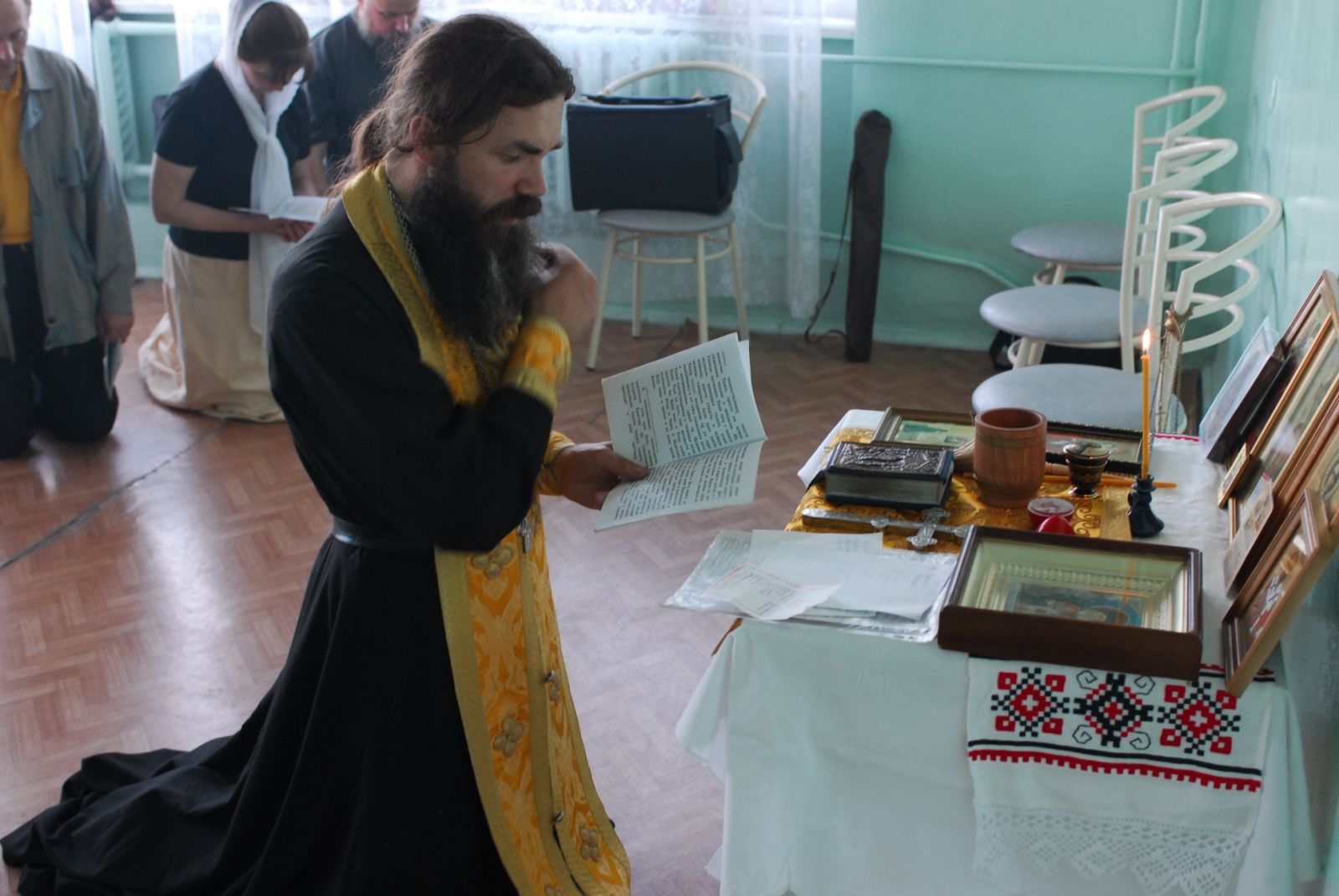
Father Andrey Malakhovsky in Clinical Hospital
The sisters of our Convent have been visiting the Hospital since 1994, thus it was one of the first ministries of our Sisterhood. The sisters' goal has always been to comfort the sick people, to bring them warmth and love when they need it the most, to just be near, ready to help in any way they can.
Blessing the establishment of our Convent, Metropolitan Philaret said,
"This is how you should look at what you do: O Lord, I have come to the sick. Please do Your work through me." His words continue to be an inspiration for the sisters today.
Sister Anastasia is one of the sisters who visit the hospital every week. She shares her personal experience with us:
Together, with 5 other sisters, I visit the Gastroenterological Department of the City Hospital No.2 each week. I have been volunteering to go there for over 3 years ago. Up to now, each visit feels like the first time. Unlike our other ministries, the turnover of patients there is constant and we meet new people all the time.
Every other Wednesday we visit every ward and talk to people about confession and Eucharist. We make a list of names of the people who would like to confess and receive Holy Communion. On Thursday we gather all the patients and answer their questions about repentance before the priest gets to the hospital.
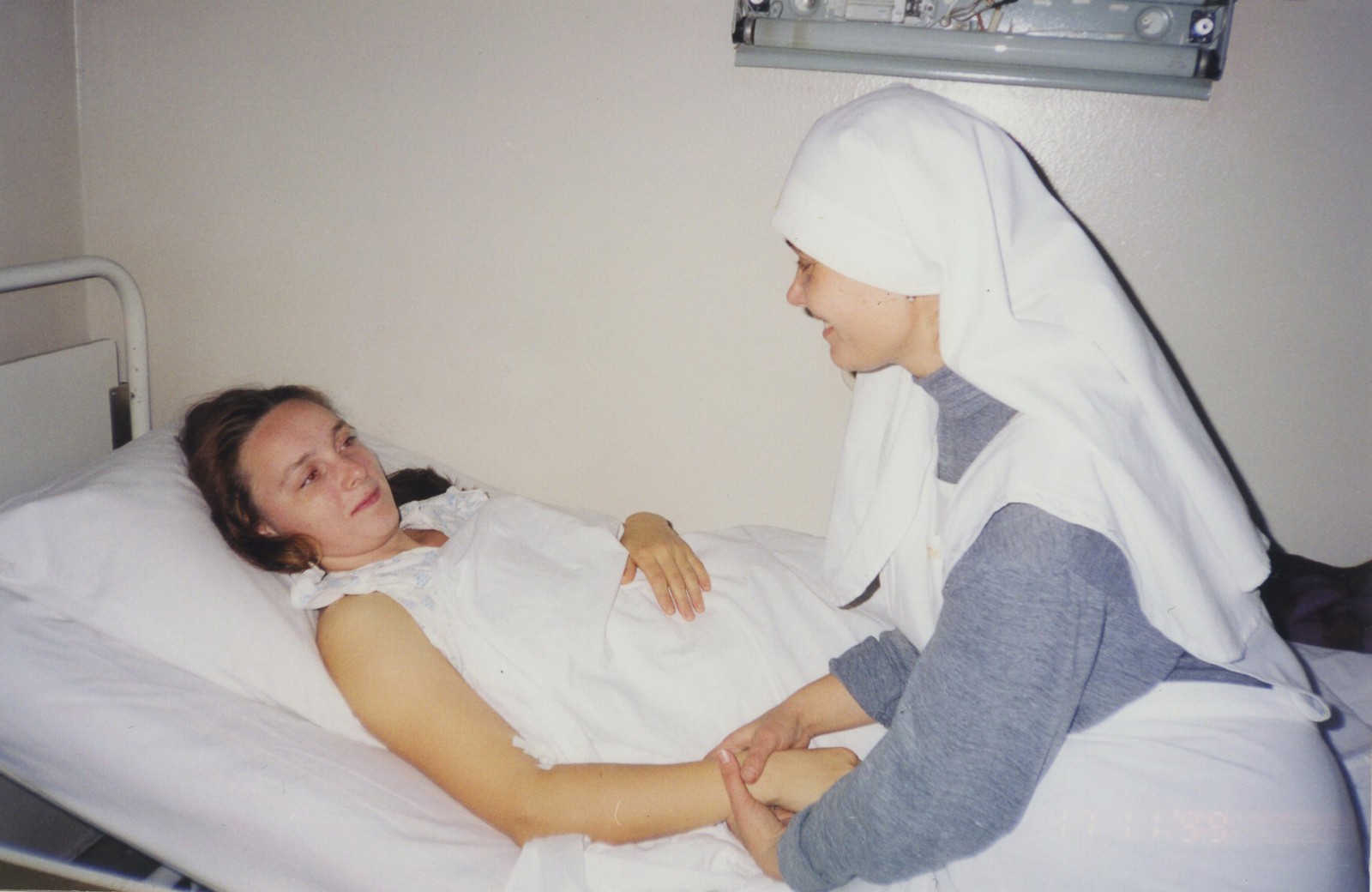
It is usually a long evening, as the priest has a long line of confessors while a sister is reading 3 canons of repentance and prayers of preparation before Holy Communion for all the patients. Other sisters are available to talk to and answer the patients' questions.
Every other Friday, we arrive at the Hospital at 6 am to wake up all the communicants and prepare them to receive the Body and Blood of Christ. Adults and elderly people strangely behave like children on that day and we need to be very careful and attentive so they won't drink water or eat anything before the Eucharist.
The majority of the patients commune for the first time in their life and we need to explain to them all practical things about how to behave, while not forgetting that we are actually talking about the sacred life-giving Sacrament. After this is done, we visit wards and commune bed-ridden patients who confessed the night before. This is our biggest reward - seeing people receive God.
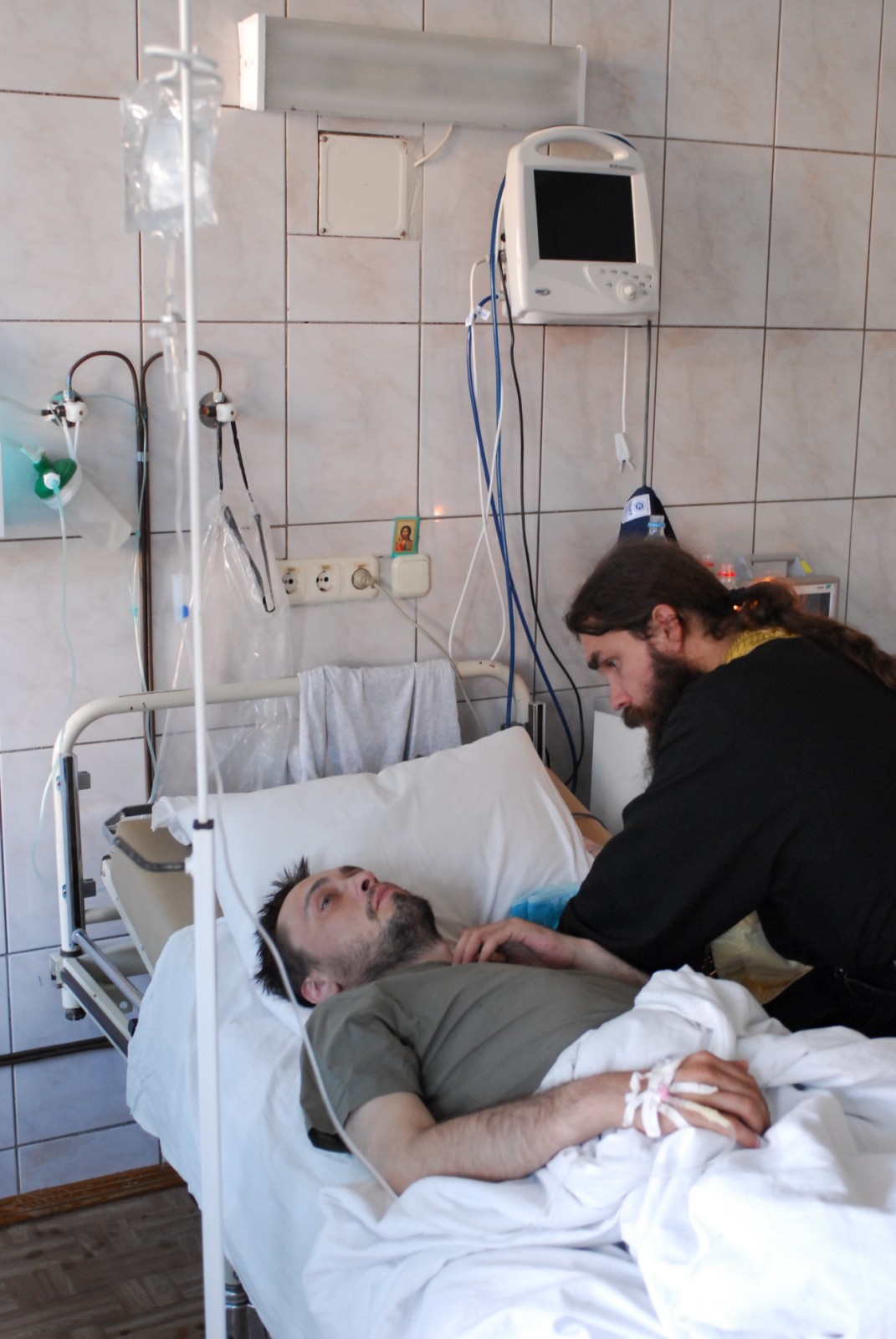
It is interesting that hospital rooms designed for 6 men are the hardest ones to enter. The reaction of the first man on your coming is the reaction of everyone else. If it is good, then all others will turn to us and listen. But if the first person is hostile, then everyone else will turn their backs on us.
However, when the priest comes in with a Chalice to give Communion to one of the bed-ridden men, the whole room might revolt. But if the communicant shakes from sobs and can barely get up being weak, but manages to do so in awe of the Sacrament, the other men fall silent after seeing this.
Only God knows what mark it leaves in their souls.
When the patients see an Orthodox Christian sister dressed in a white garment, some of them feel the need to ask her questions related to the faith. A lot of people don't know much about Orthodoxy, but they have a lot of free time in the hospital, so they decide to talk to the sisters and learn more.
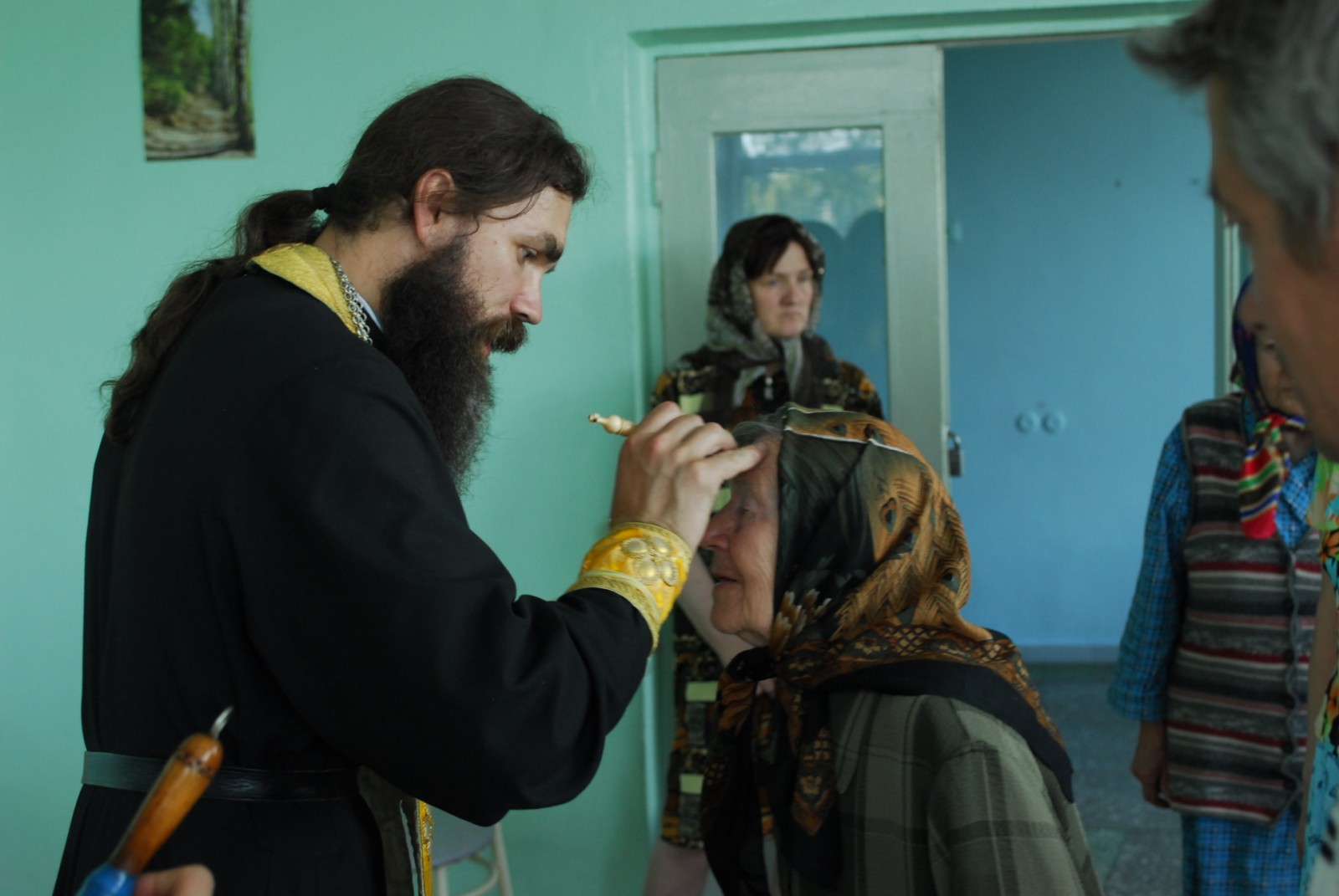
The Gospel, or the Good News, is exactly what it sounds like. It is the good news about God sending His beloved Son Lord Jesus Christ to save the world:
This is how much God loved the world: He gave his Son, his one and only Son. And this is why: so that no one needs to be destroyed; by believing in him, anyone can have a whole and lasting life. (John 3:16)
And if this good news brings even a little bit of comfort to the sick people in the hospital - then our main mission is complete.